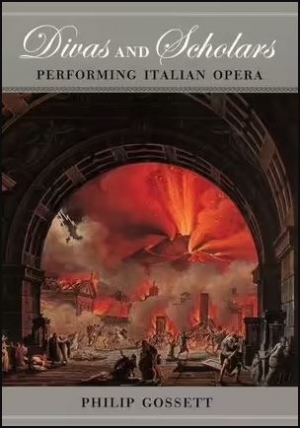Archive
‘The nearest thing on earth to a Black Australian is a White Australian, and vice versa,’ observed novelist and poet Randolph Stow some years ago. Nicolas Rothwell might have pondered the idea on his more recent wanderings as northern correspondent for the Australian. His north is not simply geographical. It fans south and west from Darwin, and east as far as Arnhem Land. Its core is in the Centre, in the Aboriginal realms of the Western Deserts: not only another country, but also, in the book’s closing phrase, ‘another time’, another dimension to the Australia we think we know. In a tribute to Darwin’s fabled Foreign Correspondents’ Association (whose members are forbidden to file the crocodile stories that southern editors want), Rothwell quotes a Latin motto, ‘Austrem Servamus’ (‘We serve the South’). It’s a droll reminder of how far the correspondent’s words must travel, through a dirty and imperfect lens, to reach from one place to the other. The mediation of numinous, heavy-laden revelations from this remote other country for mainstream consumption elsewhere is the high-wire walk of this book.
... (read more)Full-Bucket Moon
by Ross Clark
for Ted Kooser
Brenda Niall reviews 'B.A. Santamaria: Your most obedient servant: Selected Letters 1938–1996' edited by Patrick Morgan
Among countless unused fragments of information from my convent schooldays, I remember the correct forms of address for churchmen of all ranks. For the pope, it was Your Holiness; for a cardinal, Your Eminence. Next came Your Grace and My Lord, for archbishops and bishops. Then the cumbersome Right Reverend and Dear Monsignor, followed by Dear Reverend Father, which sufficed for a priest.
... (read more)Ros Pesman reviews 'A Castle in Tuscany: The remarkable life of Janet Ross' by Sarah Benjamin
From the mid-nineteenth century, the city of Florence and its surrounding hills were home to a large expatriate community in which the British were both prominent and visible – in the English tearooms and English pharmacy, in the waiting rooms of the English doctors and bankers, in the pews of the English Church. The foreigners came to live in a better climate and at less expense, to discover the world and themselves, to write, paint, collect, to escape the restraints – or the failures – of home, and to live unorthodox and unconventional lives. Aldous Huxley, whose enthusiasm for Florence was brief, wrote of this cultural mecca as ‘a third-rate provincial town, colonized by English sodomites and middle-aged Lesbians’. Despite, or because of, Huxley’s view, this English colony and its denizens, who more than adequately memorialised themselves, continue, like Bloomsbury, to be a popular and marketable publishing commodity. In his recent contribution on Florence to The Writer and the City series, David Leavitt suggested that Florence was unusual in that its most famous citizens for at least the past one hundred and fifty years have been foreigners. He then went on to make the foreigners the subject of his biography of the city, Florence: A Delicate Case (2002).
... (read more)Lyn McCredden reviews 'Westerly vol. 51' edited by Delys Bird and Dennis Haskell and 'HEAT no. 12' edited by Ivor Indyk
Who reads literary magazines, and why do they? Writers looking for what is being published, academics keeping up with who is being published, the elusive ‘general reader’ looking for a good read? The current volumes of HEAT and Westerly offer multiple reasons and rewards for picking them up, reasons which extend well beyond these superficial factors. Reasons which may send you to the postbox with a subscription form.
... (read more)Georgina Arnott reviews 'Famous Reporter no. 33' edited by Ralph Wessman et al. and 'Etchings no. 1' edited by Sabine Hopfer, Christopher Lappas and Patrick Allington
Here we have one brand new literary journal, Etchings, and one which, by comparison, is practically geriatric: Famous Reporter. There is now a proliferation of literary journals, and SPUNC (Small Press Underground Networking Community) has emerged to advance their cause. We know that mainstream publishing is producing less diverse material, and that it is increasingly not Australian. The vast majority of publishing in Australia, as Michael Wilding has highlighted, is now done by local branches of big transnational corporations. Malcolm Knox has revealed the ‘governing management principles’ of such organisations. These include ‘segmentation and internal competition’: whereas in the past a publisher subsidised ‘book sections’, now a publisher will say ‘each of these books is a discrete unit and is at war with each other unit, and if the CSIRO Diet Book does well, we will reward the diet books section with the money to repeat that success. And if the poets continue to languish, we’ll have no more poetry.’ Poetry, of course, was effectively given the flick by mainstream publishers Penguin and OUP in the 1990s. As Mark Davis says, publishers are now akin to gamblers who ‘back winners’. This may always have been true, but now they’re putting more money on the favourites and none on the roughies. In this environment, literary journals that publish poetry are crucial to maintaining a diverse local literary culture.
... (read more)Robert Gibson reviews 'Divas and Scholars: Performing Italian opera' by Philip Gossett
Divas and scholars is the work of a scholar who is no stranger to the world of divas. Philip Gossett is a music professor at the University of Chicago and is principally in the business of preparing scholarly editions of nineteenth-century operas by Italian composers. We might think of the academic institution and the opera house as antithetical spaces, but Gossett is frequently called upon to advise and assist with the staging of works that belong to his area of expertise. In other words, not only does he know the operas of Rossini, Bellini, Donizetti and Verdi as historical artefacts and texts that take all manner of forms –fragments, drafts, complete manuscripts, variant manuscripts – but as phenomena that take shape on stage and in the orchestra pit in contemporary realisations that, as he argues, owe a responsibility to the fruits of scholarship. Divas and Scholars, then, is part personal and professional history, part history of nineteenth-century Italian opera (and operas in French by Italian composers), part manifesto, treatise on the transmission of opera and handbook for present-day singers, conductors and opera producers. In a happy coincidence, the author’s surname is a near-homonym for gossip, and this excellent book is leavened with timely and beautifully judged accounts of vanity, ignorance and arrogance: three vices which, while not indigenous to the opera house, are often depressingly at home within its gilded ambience.
... (read more)James Ley reviews 'Fifty Key Literary Theorists' by Richard J. Lane
The title of Richard J. Lane’s guidebook contains a small allusion to the changes that have occurred in literary studies over the past half-century. There was a time when universities trained critics; these days, everyone is a theorist.
... (read more)John Thompson reviews 'Letters Lifted into Poetry: Selected correspondence between David Campbell and Douglas Stewart 1946–1979
The writer Meg Stewart remembers, with affection and an abiding sense of privilege, growing up as witness to the friendship that flourished between two passionate Australian poets. One of these was her father, the New Zealand-born Douglas Stewart, for many years literary editor of the Bulletin. The other was the glamorous David Campbell, who served with distinction in the wartime RAAF and wrote his poetry while grazing his country acres on holdings around the Canberra region of New South Wales. Their friendship was sustained over thirty-five years, from just before the end of World War II until Campbell’s premature death in 1979. From the outset, Stewart especially had warmed to the Campbell charisma, always widely admired amongst both men and women, and amongst the young. In a letter to Norman Lindsay describing their first meeting, Stewart described Campbell as a ‘[m]ost likeable, vigorous bloke who believes that the artist & man-of-action are kinsmen’.
... (read more)Colin Nettelbeck reviews: 'Google and the Myth of Universal Knowledge' by Jean-Noël Jeanneney (tran. Teresa Lavender Fagan)
France’s hypersensitivity about its culture is not infrequently derided, but it produces a salutary vigilance for which we can all be grateful. Such has been the case with the French-led defence of cultural specificities in the various ‘free trade’ meetings (GATT and WTO) of the past two decades. And such is this book by Jean-Noël Jeanneney. Deceptively slight in size – Jeanneney himself refers to it modestly as his ‘little book’ – it is a work that not only addresses a critical issue but articulates practical proposals that can, and should, command the attention of cultural policy-makers and decision-makers everywhere. It is also essential reading for the wider public. The issue is about which principles, in the already strongly globalised world of the Internet, should guide the processes of digitising the world’s literary heritage. Keenly critical of the plan launched by Google in late 2004 to create a universal online library, Jeanneney proposes a pluralist alternative posited on a quite different philosophy from that of the profit-based ideology underpinning the Google initiative.
... (read more)





